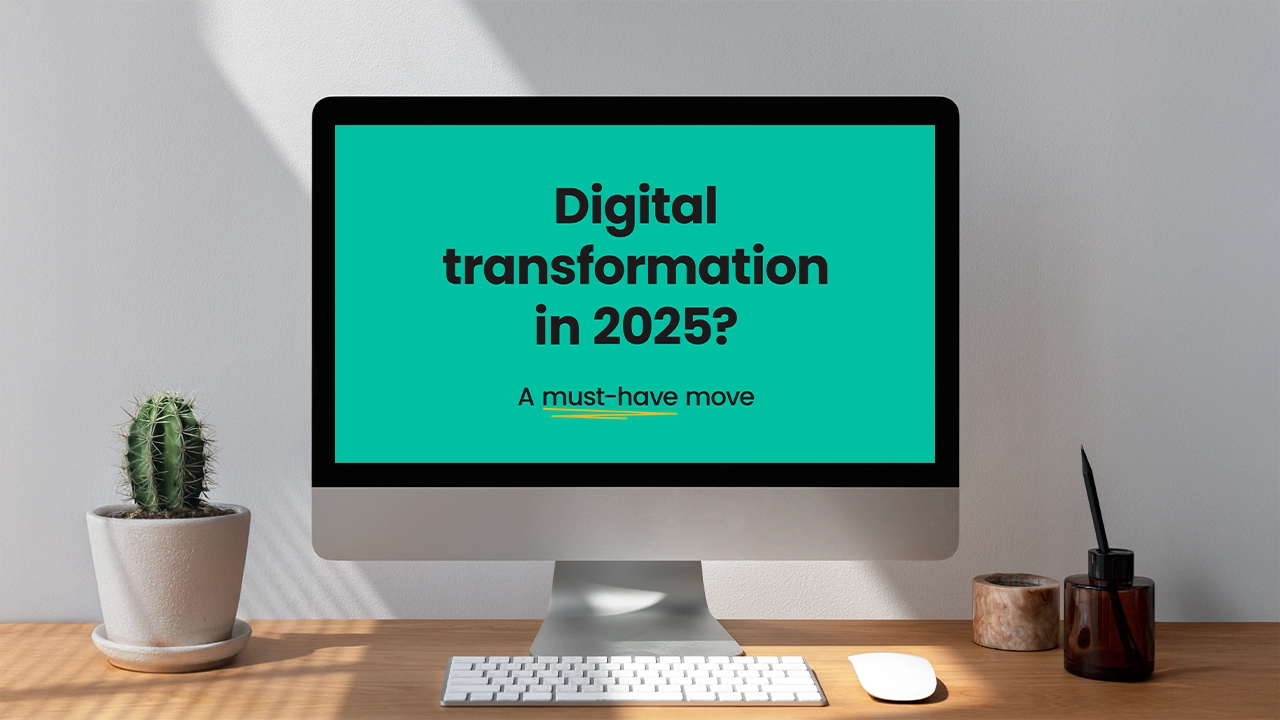Digital transformation for companies means more than just improving the digital tools they use or their digital footprint. It represents a strategic shift in changing mindsets, workflows, and even the organizational culture. It requires companies to rethink traditional models and become more data-driven and customer-focused.

What Does Digital Transformation Mean for a Company?
In simpler terms, digital transformation is the process of using digital technologies to create or improve operational processes, products, solutions, and customer interactions to meet changing business or market requirements. It’s about leveraging technology not just to optimize operations, but to increase a company’s value through innovation, invention, customer experience, and efficiency.
There are two concepts related to digital transformation: digitization and digitalization.
- Digitization – is the process of converting physical documents into digital format.
- Digitalization – is the process of using digitalized information to simplify the way of working.
What Are The Main Steps in a Digital Transformation Journey?
No two companies are the same, every company will follow a different path depending on things such as industry, scale, and digital maturity. But most of the time, the steps for a digital transformation are similar:
Define the objectives - Before you make any changes, it is necessary to identify the objectives and goals you want to achieve. Establish specific and realistic targets for your business plan.
Audit - Start by evaluating existing tools, mapping workflows and organizational structures. This will help you identify gaps and areas for improvement and understand where digital transformation can have the biggest impact.
Develop a digitalization plan – Create a roadmap to see what methods are or are not aligning with your efforts. Establish short and long-term strategies that will match your business goals.
Choose the right technologies – Focus on selecting technologies that support your processes and are on the right track with your goals. Identify what matters the most with your company and make sure they integrate seamlessly with your existing systems. There is no need for you to know about every technology – you can use a consultancy company that will help you through the process.
Implement the ideas – Now you need to put your plan into action. Slowly integrate these new technologies into your business, offering clear documentation and support for your employees to successfully adopt these tools. Remember to adjust workflows where needed. Again, using a digital transformation consultant will help you in this stage as well: the implementation phase will go much smoother if it’s done by the same company that created the digitalization plan in the first place.
Monitor and adapt - Continuously check the progress and optimize where is needed.
The role of Artificial Intelligence in digital transformation
Artificial Intelligence and machine learning are the engines behind many digital transformations. They are not here to replace people, they are critical for automating complex processes, analyze user behavior to anticipate needs, and offering support by analyzing complex data sets and offering fast insights.
Companies that embrace an AI strategy are more likely to gain a competitive advantage in the changing business world. Artificial Intelligence can improve almost every aspect of a company: IT, supply chain, customer service, HR and business operations.
Final Thoughts
Digital transformation is no longer a future ambition, it’s a necessity. Companies that embrace the shift are not just adopting new tools, they’re redefining how they operate, innovate and deliver value. To navigate this complex journey, you need the right partner – a digital agency that understands technology and business strategy. We’re here to guide and support your transformation every step of the way.
Similar Articles
Want to chat more about this topic or any other topic?
Book a meeting with one of our digital monsters!